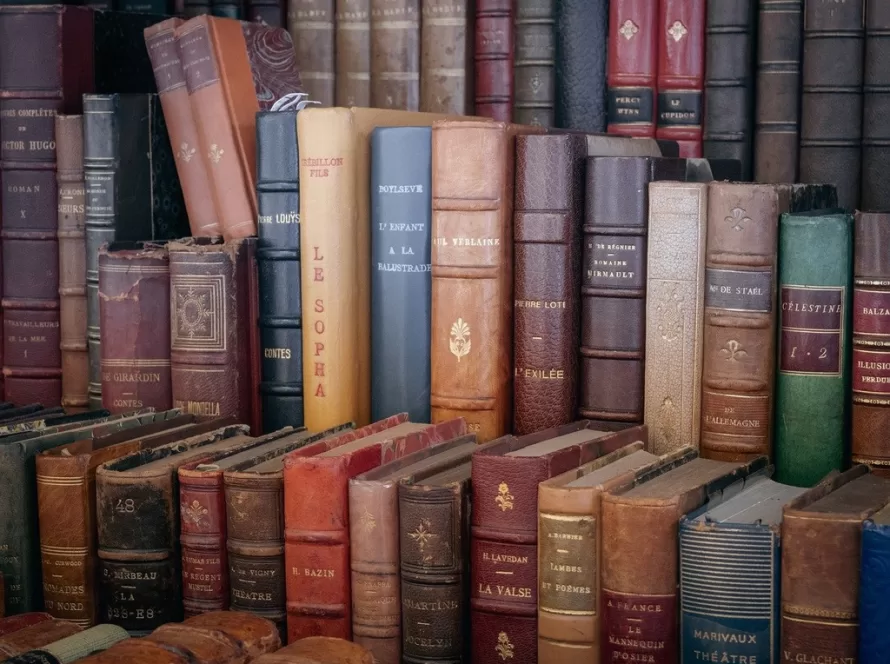
What Makes Dystopian Books a Winner
The haunting allure of dystopian novels, where the colliding worlds of desolation and imagination intertwine. These literary masterpieces entertain readers with their eerie landscapes and thought-provoking narratives. Easily transporting us to bleak futures or alternate realities. In this article, we delve deep into the history of dystopian literature. Analyzing its enduring appeal and the profound impact it has on our collective conscience.
Dystopian novels have garnered a massive following across the globe. Offering readers a thrilling escape into completely different worlds. From George Orwell’s “1984” to Margaret Atwood’s “The Handmaid’s Tale.” These works shed light on societal issues and challenge the status quo. Leaving a lasting impression long after the final page is turned.
But it’s not just the allure of bleakness that draws readers in. Dystopian novels also serve as cautionary tales. Reflecting our fears, anxieties, and hopes for the future. By submerging ourselves in these fictional worlds. We confront uncomfortable truths about the world we live in today.
Read along as we examine the realms of desolation and imagination. Probing the haunting allure of dystopian novels and their enduring impact on literature and society. Unlock the secrets held within these pages. And discover the power of the written word to spark change and ignite our imagination.
The origins of dystopian literature
Dystopian literature finds its roots in the early 20th century, emerging as a response to the political and social unrest of the time. Authors like Aldous Huxley and George Orwell laid the foundation for the genre with their seminal works, “Brave New World” and “1984,” respectively. These novels depicted oppressive governments, surveillance societies, and the loss of individual freedom, striking a chord with readers who were grappling with the uncertainties of a rapidly changing world.
As the genre evolved, other authors like Ray Bradbury, Margaret Atwood, and Lois Lowry began exploring dystopian themes in their works, adding their unique perspectives to an ever-growing body of literature. Today, dystopian novels continue to captivate readers, reflecting our contemporary fears and anxieties while offering a glimpse into a future that could be.
Characteristics of dystopian novels
Dystopian novels are characterized by their dark and grim settings, often depicting societies in ruins or on the brink of collapse. These worlds are marked by totalitarian regimes, oppressive governments, and strict social hierarchies. The protagonists in these novels are usually ordinary individuals who find themselves caught in extraordinary circumstances, challenging the status quo and fighting for their freedom. The narratives often explore themes of power, control, rebellion, and the resilience of the human spirit.
Dystopian novels also incorporate elements of science fiction, often featuring advanced technology, artificial intelligence, and futuristic landscapes. These elements serve as a backdrop for the exploration of larger social and political issues, shining a light on the consequences of unchecked power and the dangers of complacency.
The appeal of a dystopian novel
Dystopian novels have garnered a massive following across the globe. Offering readers a thrilling escape into completely different worlds. The allure lies in the exploration of the human condition under extreme circumstances. Allowing us to question our own beliefs and values. These novels provide a sense of catharsis, allowing us to confront our fears and anxieties in a safe and controlled environment. In a world that can often feel chaotic and uncertain. Dystopian novels offer a sense of order and structure. Providing a framework for understanding the complexities of our society.
Additionally, dystopian novels serve as cautionary tales. Reflecting our fears, anxieties, and hopes for the future. By immersing ourselves in these fictional worlds, we confront uncomfortable truths about the world we live in today. These novels force us to confront the consequences of our actions and the impact they may have on future generations. Through their thought-provoking narratives, dystopian novels encourage us to question authority. Challenge the status quo, and strive for a better world.
Themes in dystopian literature
Dystopian literature explores a wide range of themes, each offering a unique perspective on the human condition and society as a whole. One prevalent theme is the loss of individual freedom and autonomy. Dystopian societies are often marked by oppressive governments that control every aspect of their citizens’ lives, from their thoughts and emotions to their physical movements. These narratives explore the dangers of unchecked power and the importance of individual agency in shaping the course of our lives.
Another recurring theme in dystopian literature is the dehumanization of society. In these worlds, the value of human life is often diminished, and individuals are reduced to mere cogs in a machine. These narratives highlight the importance of empathy, compassion, and maintaining our humanity in the face of adversity.
Dystopian literature also tackles issues of social inequality, highlighting the stark divisions between the haves and have-nots. These narratives shed light on the consequences of unchecked greed and the societal implications of wealth disparity. By exploring these themes, dystopian novels encourage readers to critically examine the structures and systems that govern our society.
Popular dystopian novels and their impact
Over the years, numerous dystopian novels have left a lasting impact on literature and society. George Orwell’s “1984” remains one of the most influential dystopian novels ever written. Its depiction of a surveillance state and the manipulation of truth continues to resonate with readers, serving as a cautionary tale against authoritarianism.
Margaret Atwood’s “The Handmaid’s Tale” paints a chilling picture of a patriarchal society where women are reduced to reproductive vessels. The novel has sparked important conversations about women’s rights, reproductive autonomy, and the dangers of religious fundamentalism.
Ray Bradbury’s “Fahrenheit 451” explores themes of censorship, intellectual freedom, and the power of literature. The novel serves as a reminder of the importance of knowledge and critical thinking in the face of oppression.
These are just a few examples of the impact dystopian novels have had on literature and society. They have the power to challenge our assumptions, provoke discussion, and inspire change.
The role of technology in dystopian novels
Technology often plays a central role in dystopian novels, serving as both a tool for control and a means of resistance. These novels explore the ethical implications of technological advancements and the potential consequences of unchecked scientific progress.
In novels like “Brave New World” and “The Matrix,” advanced technology is used to manipulate and control the population. These narratives raise important questions about the limits of technology and the dangers of surrendering our autonomy to machines.
On the other hand, dystopian novels also highlight the potential for technology to be a force for good. In novels like “Ready Player One” and “Snow Crash,” virtual reality and immersive gaming offer an escape from the bleakness of reality. These narratives explore the blurring lines between the physical and digital world and the impact it has on our perception of reality.
The connection between dystopian literature and social commentary
Dystopian literature has always been deeply intertwined with social commentary. These novels hold up a mirror to our society, reflecting our fears, hopes, and anxieties about the future. Through their thought-provoking narratives, dystopian novels challenge us to critically examine the world we live in and question the systems and structures that govern our lives.
By presenting exaggerated versions of our reality, dystopian novels force us to confront uncomfortable truths about the consequences of our actions. They highlight the dangers of complacency and the importance of remaining vigilant in the face of injustice. Dystopian literature encourages readers to become active participants in shaping the course of their society, sparking important conversations, and inspiring social change.
A dystopian novel in popular culture
Dystopia has not only made an impact in the literary world. But have also permeated popular culture. Many dystopian books have been adapted into successful films and television series. Reaching a wider audience and sparking important conversations about the themes explored in these narratives.
“The Hunger Games” trilogy by Suzanne Collins, for example. Caught audiences with its depiction of a dystopian society where children are forced to fight to the death. The series not only entertained but also raised questions about the consequences of war. The power of propaganda, and the importance of individual agency.
Other dystopian novels, such as “Divergent” and “The Maze Runner.” Have also found success in the film industry, further cementing the genre’s popularity.
Conclusion: The enduring allure of dystopian novels
In conclusion, dystopian novels continue to captivate readers with their haunting allure. These literary masterpieces transport us to desolate worlds, challenging our perceptions and forcing us to confront uncomfortable truths. They serve as cautionary tales, reflecting our fears, anxieties, and hopes for the future. Through their thought-provoking narratives, dystopian novels encourage us to question authority, challenge the status quo, and strive for a better world.
As we journey through the realms of desolation and imagination, we unlock the secrets held within these pages and discover the power of the written word to spark change and ignite our imagination. Dystopian literature has endured throughout the years because it speaks to our collective conscience and reminds us of the importance of remaining vigilant in the face of injustice. So, pick up a dystopian novel, immerse yourself in its pages, and explore the colliding worlds of desolation and imagination. Excitement awaits.














































































































